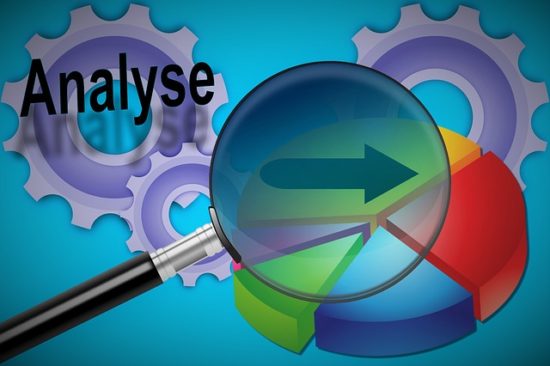As 2023 comes to an end, you may have just a few weeks left to use any leftover money in your health-care flexible savings account. Employer-sponsored FSAs allow you to save pretax dollars and use the funds for qualified medical expenses. An individual can save up to $3,050 in these accounts in 2023. However, unlike a health savings account, which roll over year to year, the funds in an FSA are considered “use it or lose it." According to Employee Benefit Research Institute data, almost half of workers forfeit some of their pretax dollars. Click the link below for seven ways to take advantage of leftover savings while you can.
Read moreYear: 2023
The holidays are a time to relax and enjoy being around family and friends. There’s also more time for in-depth conversation about topics that might not normally come up - such as financial planning for members of the family. For parents, ask if their finances are healthy and if their living arrangements are viable. For children, share information they need to know about your finances and ask if they are taking the right steps for their financial futures. For spouses/partners, discuss shared goals for your future together and make sure you are on track with your budget. Click below for the full article.
Read moreMedicare beneficiaries have until Dec. 7 to change their Medicare health and prescription drug coverage for the coming year through annual open enrollment. Health and drug plans make changes every year, so experts say it’s wise to revisit your selections to see which plans match your needs when it comes to cost and coverage, as well as the providers and pharmacies that are in network. Additionally, you can switch from original Medicare, which is managed by the federal government, to a Medicare Advantage plan that is privately managed, or vice versa, during open enrollment. Changing to a different Medicare Advantage plan is also permitted during open enrollment. Keep reading for more details.
Read moreAccording to the Federal Reserve Bank of Dallas, Mexico has once again cemented its place as America's top trading partner, with $263 billion worth of goods passing between the two countries in the first four months of this year. Trade with Mexico accounted for 15.4% of goods exported and imported by the US, just ahead of America's trade totals with Canada and China, which were 15.2% and 12% respectively. Mexico's ability to take the top spot away from China — which had spent the last two decades integrating itself further into the US economy — is a clear sign of how the economic chaos of 2020 is set to continue to define the world economy for years to come. Nearshoring increased during the pandemic because of the increased cost of shipping products across the Pacific and the consumer demand for faster delivery times. Click below for the full article:
Read moreMichelle Ruddy owns a vacant plot of land in Asbury Park. From time to time, she gets inquiries about whether she would like to sell it. But she’s stuck, saying she’d like to build on it someday. Imagine the shock when she got a call from a lawyer who handled the closing of the land sale. “She asked me if I was Michelle Ruddy. I said yes. She said, ‘I want to make sure I mail your check for the sale of your property to the correct address,'” Ruddy said. “I hung up the phone thinking it was a hoax.” But it was not a hoax. It was a sophisticated fraudulent attempt to steal money from the sale. Click below for the rest of the story.
Read moreAs most of us know, people accidentally ruin their finances all the time. It’s unfortunate, but it happens. And it’s not something that only occurs with younger adults — even seniors often fall culprit to financial errors. If it’s easy for adults to make money mistakes, imagine how easy it could be for a college kid. Here are 13 potentially disastrous financial blunders you can help your college student avoid.
Read moreSpousal benefits are probably the most misunderstood Social Security benefit. Ex-spousal benefits may seem even more convoluted. Here is a summary of requirements to file for ex-spousal benefits. To be eligible to collect an ex-spousal benefit: (1) your ex-spouse must be living. (2) you need to be single, (3) you need to be at least 62, (4) you must have been married 10 years or more and (5) the ex-spousal benefit must be greater than your own worker benefit. Keep reading for additional considerations:
Read moreThe “Kiddie Tax” is a law that stipulates how investment and unearned income are treated for minors or full-time college students under the age of 24. Before the Kiddie Tax, parents could save on taxes by putting investment accounts in a child’s name. Parents would gift stocks and other assets to their children, and income earned on the assets would be taxed at the child’s (lower) income tax rate, instead of the parent’s (higher) income tax rate. The Kiddie Tax closed this loophole by taxing children’s passive income at higher rates. Keeping reading to find out the details.
Read moreAt nearly the midway point of the year, the S&P 500 Index has proven surprisingly resilient despite numerous headwinds, such as multiple Fed rate hikes and instability in the banking system. However, the S&P 500’s rally doesn’t necessarily match what’s going on inside diversified equity portfolios. While the S&P 500 is up 12%, 7 stocks – Alphabet, Amazon.com, Apple, Meta Platforms, Microsoft, NVIDIA, and Tesla – are up an average of 69.0 percent! The rest of the stocks in the S&P 500 are up only 2.5%, on average. It goes without saying that this is a whopping disparity. Investors with diversified portfolios [need patience] during this period of narrow leadership. We’re already seeing signs that market performance is starting to broaden out.
Read moreThere is a wrinkle in the federal tax code that can help heirs avoid or reduce taxes on inherited assets, which is known as "step-up in basis". A capital gain happens when you sell an asset for more than what it initially cost. A step-up in basis takes into consideration the fair market value of an asset when it was inherited rather than when it was acquired. This means there’s a “step-up” from the original value to the current market value. Conversely, if someone gives a gift to somebody during their lifetime, the recipient retains the basis of the person who made the gift, which is known as a “carryover basis.” Click below for more detail including some examples.
Read moreNational College Decision Day, also known as College Signing Day, is the first day of May each year. On this day, high school seniors who applied and were accepted into one or more colleges must confirm their enrollment with the school of their choice. This confirmation is usually attached to an enrollment deposit. It’s the culmination of your hard work and dedication researching schools, taking entrance exams, touring campuses, writing essays, submitting your applications, and eagerly awaiting acceptances. Keep reading for some tips on what comes next.
Read moreFirst came the good news. After taking classes at a community college, Ricki Korba was admitted to California State University, Bakersfield, as a transfer student. But when she logged on to her student account, she got a gut punch: Most of her previous classes wouldn’t count. Every year, hundreds of thousands of students start at community colleges hoping to transfer to a university later. It’s advertised as a cheaper path to a bachelor’s degree, an education hack in a world of ever-rising tuition costs. Yet the reality is rarely that simple. For some students, the transfer process becomes a maze so confusing it derails their college plans. Click below for the rest of the story.
Read moreWhy is Medicare so darn confusing? Let’s start with the basic rules. You become eligible for Medicare, the federal government’s health insurance programs for seniors, when you turn 65. Medicare includes Part A, which is premium-free and pays for most hospital costs, and Part B, which has a monthly premium and pays for most doctors’ fees and outpatient services. About half of retirees supplement original Medicare with a private Medigap policy, and in some cases, a Part D prescription drug plan. Others choose to bundle their Medicare services into a comprehensive Medicare Advantage plan, which may offer additional coverage, such as vision and dental care, in exchange for using a network of health care providers. Keep reading for more detail and information on initial, special, and annual general enrollment periods.
Read moreThe index gurus are at it again. Some of the best-known stocks are getting reclassified on Friday, and that means a lot of money is going to move around. Thirty years ago this would all have been of interest to academics, but almost no one else. That was before the triumph of indexing and exchange-traded funds. Every year in March, S&P and MSCI announce changes in the classification system. If you’re an investor in a broadly diversified total market index fund like the S&P 500, the changes will make little difference to you. The changes will be more significant if you trade sectors, which is an increasingly popular strategy. Click the link below to see details of this year's changes.
Read moreWhether you're a recent college grad or have spent some years working and saving, you might be thinking about making your first home purchase. But is now really the right time for you to step into the real estate market? Can you even afford a house purchase? When is the right time to buy a house? Keep reading for help making such a major decision.
Read moreIt is that time of year to consider making an IRA Contribution. You have until April 18, 2023 to make a contribution for 2022. You can also make your 2023 contribution at the same time.
Read moreThe SECURE 2.0 Act of 2022 includes almost 100 new retirement plan provisions, many of which aren’t effective yet. But some big changes involving required minimum distributions and related penalty relief are already in effect, The age for RMDs was increased from 72 to 73 in 2023, and then to 75 a decade later, in 2033. The 50% penalty for skipping your RMD was reduced to 25%, and to 10% if the missed RMD is made in a timely manner. A new statute of limitations now applies to missed RMDs (3 years) and excess IRA contributions (6 years). Starting in 2024, Roth 401ks will be exempt from RMDs making them similar to Roth IRAs. Click below for more detail on these changes.
Read moreOlder Americans started 2023 with a trifecta of good news: bigger Social Security benefits, lower Medicare premiums, and easier access to Medicare enrollment. Social Security benefits increased by 8.7% in January as a result of the largest cost-of-living adjustment in more than 40 years. It’s not necessary to claim Social Security benefits in 2023 to cash in on the huge annual increase. Anyone who’s 62 or older and eligible to receive Social Security in 2023, meaning anyone born in 1961 or earlier, will profit from the 8.7% COLA. Not only did Social Security benefits increase this year, but Medicare Part B premiums, which are usually deducted directly from Social Security payments, declined for the first time in more than a decade, Most Medicare beneficiaries pay the standard Part B premium of $164.90 per month in 2023, down slightly from the $170.10 per month they paid last year, but some high-income retirees pay more. New Medicare enrollment rules also took effect in 2023. Click to read more on these items as well as the New Medicare enrollment rules.
Read more
















